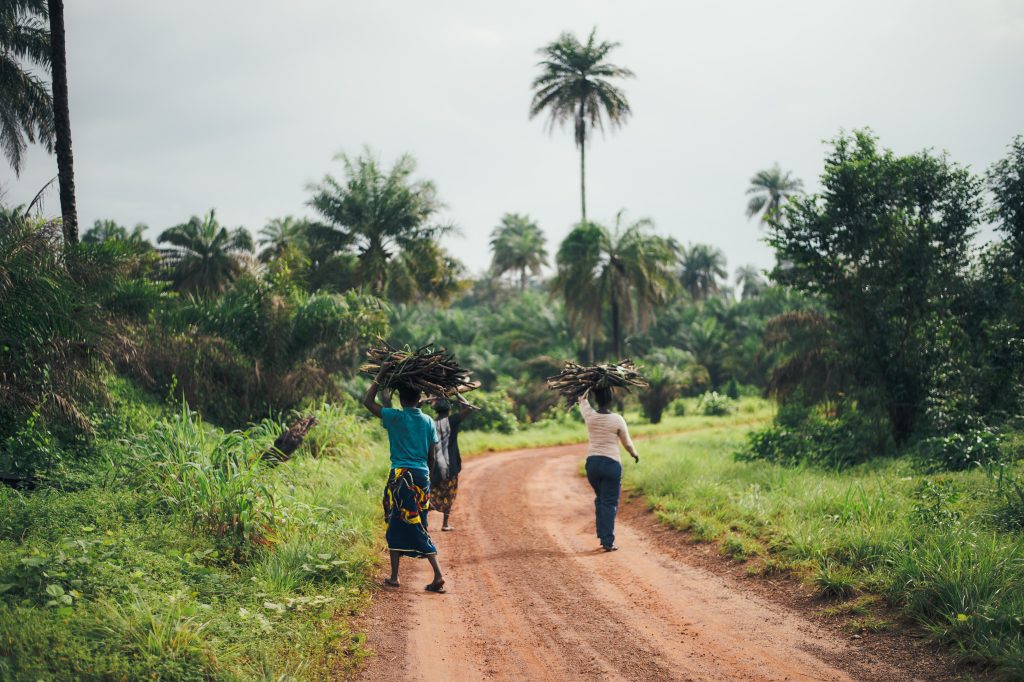- Date
- 13th May 2020
- Categories
By Dr Joni Cook
This blog discusses the central importance of the ‘Leave No-One Behind’ (LNOB) agenda to the aims and activities of the MECS programme and the broader clean cooking movement, and introduces a new spotlight blog series. The LNOB blog series aims to share knowledge and insight relating to the LNOB agenda gained from our global activities through the MECS programme. By sharing LNOB-focused insight, we endeavour to facilitate collective prioritisation of the LNOB agenda throughout the wider clean cooking sector and movement, and increase the impact and pace of LNOB progress as a whole.
“As long as poverty, injustice and gross inequality exist in our world, none of us can truly rest.” Nelson Mandela, Make Poverty History rally, 2005.
‘Leave No-One Behind’ (LNOB) is the transformative promise that underpins the Sustainable Development Goals (SDGs) as set out in the United Nation’s 2030 Agenda for Sustainable Development. The pledge endeavours to eliminate absolute poverty in all forms, to end group-based discrimination, and to “reach the furthest behind first”. Essential not only at the fundamental level of human rights and well-being of every global citizen, LNOB is also imperative to fulfilling broader agendas of achieving and maintaining sustainable, resilient and adaptable societies, environmental sustainability and climate justice, and eliminating global conflict and violence. And there is no greater urgency than during these turbulent times. The most disadvantaged and marginalised groups – those with lower incomes and those discriminated against based on gender, race, ethnicity, health and age – suffer disproportionately from the impacts of extreme events, disasters and crises. For climate and geophysical disasters since 2000, people living in low income countries were 7 times more likely to die than people living in high income countries. Women continue to bear the brunt of the devastation and hardship caused by increased frequency and severity of natural disasters as a result of the climate crisis, and disproportionately shoulder the harmful impacts of global disease pandemics such as Covid-19 and Ebola.

Despite the urgent collective need for fulfilling the LNOB promise, global progress to date on meeting the SDG Agenda target of 2030 has been slow. Despite some positive trends – for example, extreme poverty has declined considerably (the under-5 mortality rate decreased by 49% between 2000-2017), extreme poverty is not projected to be eliminated by 2030 and progress in many other areas relating to LNOB agenda has stalled or is declining. World hunger continues to rise for those living in low to middle income countries, predominantly in sub-Saharan Africa and Southern Asia – persons classified as undernourished rose from 784 million in 2015 to 824 million in 2017. Women, persons with disabilities, and the young and old, continue to suffer hardship and discrimination. For example, women constitute two thirds of the 750 million people who are classified as illiterate, only 28% of persons with disabilities receive disability pensions, and youths are three times more likely to be unemployed than adults. It is crucial that substantial international, multilateral actions across political, economic and sociological systems are implemented during the next decade in order to achieve the LNOB agenda by 2030.

Research programmes with a core focus on international development and/or SDG themes play a pivotal role in driving forward structural policy changes needed to support LNOB agenda fulfilment. For MECS which directly feeds into progress towards achieving SDG7 (access to modern, clean energy for all), the LNOB agenda is a central imperative of all programme aspects and indeed the wider clean cooking movement as a whole. Nearly 3 billion people, based mostly in low to middle income countries, cook using traditional methods of biomass, and the associated burden of these traditional cooking practices falls predominantly to women. MECS aims to accelerate the transition to modern energy cooking services whilst employing a unique approach to addressing gender, inclusion and LNOB. This approach takes a combined vision of tackling these equality themes which ensures they receive equal attention (read our policy statement here).
MECS activities undertaken with an integral LNOB theme are varied in nature, country context and impact. Recent examples include examining the importance of gender dimensions in both humanitarian and institutional cooking contexts, the production of an eCookBook written by women for women led by our Tanzanian partner TaTEDO, and empowering local women through the gaining of IT, data collection and analysis skills by employing and training them to lead cooking diaries trials in Kenya and Tanzania. Regular monitoring and evaluation of programme progress is an essential mechanism for ensuring that LNOB is mainstreamed throughout all global activities, LNOB indicators and impact are defined, measurable and measured, and that the programme as a whole remains focused on the common goal of achieving modern energy cooking services for all. This is achieved, for example, by evaluation of progress reports, social network analysis of stakeholder maps, reviews of internal strategies and work plans, and regular feedback from project partners. We work closely with collaborators in the clean cooking sector to develop and implement initiatives with a core LNOB focus, such as our ongoing work with CCA to ensure that a transition to clean cooking is prioritised by governments worldwide as a root cause underlying the Covid-19 pandemic. Our LNOB-focused activities complement related initiatives undertaken by project partners and collaborators in the clean cooking sector. Recent examples include the showcasing by CCA of stories of women entrepreneurs working to improve access to clean cooking and to empower women in Haiti, India and Uganda, and the release of a policy brief by ENERGIA and the Efficiency for Access coalition exploring the role of energy efficient appliances in achieving gender equality and energy access for all.

Here, we introduce a new LNOB blog series which aims to share knowledge and insight relating to the LNOB agenda gained from global activities of the MECS programme. Through this series, we discuss activities, best practices, strategies, experiences and lessons learnt relating to LNOB in a clean cooking transition context, drawing on the knowledge, expertise and experiences of the MECS family undertaking a diverse range of programme activities throughout 15 priority countries. A blog focusing on a different aspect of the LNOB agenda will be published on a monthly basis on the MECS website. By sharing LNOB-focused knowledge and insight gained from MECS activities, we endeavour to facilitate the prioritisation of LNOB integration throughout the broader clean cooking movement and increase the impact and pace of the LNOB movement as a whole. Our first blog of the series focuses on disability and MECS – independent research consultant Dr Amita Bhakta writes about how to ensure that disability is considered throughout all aspects of MECS programme activities.